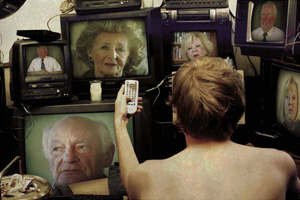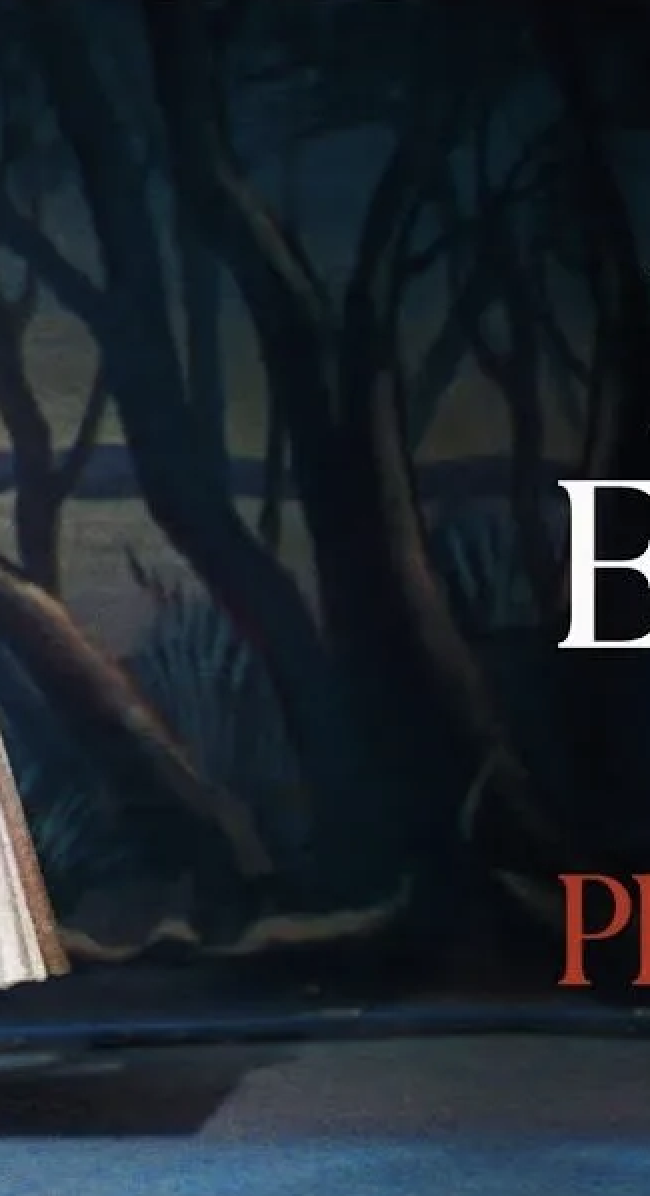(The Memory Thief is now available on DVD through 7th Art. Visit the film’s official website to view the trailer.)
In a 1957 essay, Norman Mailer wrote that the Holocaust “presented a mirror to the human condition which blinded anyone who looked into it,” for the Final Solution was the “collective creation” of a society more like than unlike our own, “and if society was so murderous, then who could ignore the most hideous of questions about his own nature?”
Who indeed? Just about everybody, as it turns out. Mainstream American movies about the Holocaust, or any historical atrocity, aren’t in the business of asking hideous questions of their audiences. Such films, if done well, can pay a generous debt to history by commemorating its heroes and its victims. But even at their best—say, Schindler’s List—they run the risk of trivializing the past by reducing it to a backdrop for sentimental escapism and an enabler for the easy pleasures of self-congratulation. At movie’s end, we wipe away our tears and murmur, “Wasn’t that terrible. Weren’t those Nazis evil.” And then, having taken a firm stand against evil, and in favor of goodness, we move on.
It may be that one of the most urgent and necessary tasks of a genuinely independent-minded cinema is to not let us off the hook so easily.
Gil Kofman, a playwright making his film debut as a writer/director with The Memory Thief, takes up the challenge; his Holocaust movie presents something like that dark “mirror to the human condition” Mailer invoked. It’s a rigorously unsentimental piece of work whose subject is the sentimentalization of history’s horrors. What Kofman wants to show us is how a seemingly noble emotion—compassion for the Holocaust’s victims—can be perverted into self-righteous identification with the victim, the bearing of the victim’s scars as one’s own. The questions his film raises are, if not quite “the most hideous” ones imaginable, certainly unsettling: How much can we truly comprehend another’s suffering? Is there something intrinsically self-serving about what Susan Sontag, in her book on images of war and atrocity, called “regarding the pain of others?” Where is the boundary separating empathy (“I feel your pain”) from narcissism (“Look at me, feeling your pain”)?
 The “memory thief” of the title is Lukas (Mark Webber), a young tollbooth operator in Los Angeles. The film’s press notes nod to Taxi Driver, and in the early scenes, Lukas has a lot of Travis Bickle in him: alienated at work, alone in the world, a nobody in search of something that would make him a Somebody. That “something” arrives when he gets his hands on the videotaped testimony of a Holocaust survivor. Deeply affected by the man’s account, Lukas attends his memorial service, then pretends to be Jewish in order to land a job with the organization that records the survivors’ testimonies. Soon he’s watching the videotapes around the clock, fetishizing the survivors’ every word and gesture. He buys a Hebrew prayer book and a Jewish prayer shawl and puts up a mezuzah, but he’s not interested in converting, nor in learning much about Jewish history and culture beyond the Holocaust: for Lukas, Judaism begins with Kristallnacht and ends at Auschwitz. It’s the idea of victimhood that turns him on, gives him an identity, makes him feel alive. As his obsession escalates, his identification with the Six Million crosses the line into pathological self-delusion. Before long, he visits an elementary school to speak about how he lost his family to the Nazis. He sews yellow stars into his clothing, and has a six-digit number tattooed onto his arm.
The “memory thief” of the title is Lukas (Mark Webber), a young tollbooth operator in Los Angeles. The film’s press notes nod to Taxi Driver, and in the early scenes, Lukas has a lot of Travis Bickle in him: alienated at work, alone in the world, a nobody in search of something that would make him a Somebody. That “something” arrives when he gets his hands on the videotaped testimony of a Holocaust survivor. Deeply affected by the man’s account, Lukas attends his memorial service, then pretends to be Jewish in order to land a job with the organization that records the survivors’ testimonies. Soon he’s watching the videotapes around the clock, fetishizing the survivors’ every word and gesture. He buys a Hebrew prayer book and a Jewish prayer shawl and puts up a mezuzah, but he’s not interested in converting, nor in learning much about Jewish history and culture beyond the Holocaust: for Lukas, Judaism begins with Kristallnacht and ends at Auschwitz. It’s the idea of victimhood that turns him on, gives him an identity, makes him feel alive. As his obsession escalates, his identification with the Six Million crosses the line into pathological self-delusion. Before long, he visits an elementary school to speak about how he lost his family to the Nazis. He sews yellow stars into his clothing, and has a six-digit number tattooed onto his arm.
Kofman’s plot unfolds with crisp efficiency, and his dialogue deftly sketches Lukas’s growing derangement: “Haven’t you heard? Auschwitz isn’t just for the Jews anymore.” “I have a hard time remembering my own past, so I remember the pasts of others.” “I’m Jewish where it counts, I know how to suffer.” As a director, Kofman conjures up some striking images, such as the endless line of hands reaching out of cars to pay their tolls, an apt metaphor for Lukas’s isolation among LA’s teeming multitudes. Probably the most ingenious formal device in the film is the use of actual survivors’ testimonies in the scenes of Lukas watching the tapes. We watch along with him, and are moved by what we see, and are thus nudged toward being implicated in Lukas’s point of view.
However, by aligning our perceptions so closely with Lukas’s—everything that happens is seen through his eyes—Kofman eventually steers himself, and his film, into a corner. For much of its running time, I felt The Memory Thief wasn’t only telling me a compelling story, but giving me wider insights into its themes, and I was held in its grip. But its power rests in its ability to make Lukas’s hunger for significance real and resonant to us, and as the narrative progresses, the character starts to turn into a standard-issue movie madman. The crazier he gets, the less interesting he becomes. Kofman’s keen intelligence never deserts him; he pursues the cunning logic of his story all the way to its arresting final image. Yet by the time the credits roll, the film has long since stopped paying the big dividends it delivered earlier. That window it opened onto the world outside itself shuts down, genre convention reasserts itself, and we’re left with a case study of a heavy-breathing nutjob.
Often, when a film starts strong but runs out of gas by the end, its shortcomings will seem magnified in retrospect, even as its virtues seem proportionately reduced. So it is with The Memory Thief. I haven’t been recommending the movie to friends since I saw it. But thinking about it weeks later, I’m still impressed by its thematic ambition, its conceptual originality, and the grim integrity with which the story plays out. It’s a bold, serious, and in many ways accomplished debut.
— Nelson Kim











